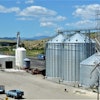
TheU.S. Department of Energy (DOE)has awarded $118 million in funding for 17 projects to accelerate the production ofsustainable biofuelsfor America’s transportation and manufacturing needs.
Theselected projects, located at universities and private companies, will drive the domestic production of biofuels and bioproducts by advancing biorefinery development, from pre-pilot to demonstration, to create sustainable fuels that reduce emissions associated with fossil fuels.
The DOE says funding for this opportunity supports President Biden’s goals to deliver an equitable, clean energy future, and put the U.S. on a path to achieve net-zero emissions, economy-wide, by no later than 2050. Projects selected as part of this funding opportunity will contribute to meeting DOE’s goal to achieve cost-competitive biofuels and at least a 70% reduction in greenhouse gas (GHG) emissions by 2030.
Funding helps reduce technological uncertainties, enable industry development
Made from widely available domestic feedstocks and advanced refining technologies, energy-dense biofuels provide a pathway for low-carbon fuels that can lower greenhouse gas emissions throughout the transportation sector and accelerate the bioeconomy.
Financing for novel biorefinery process systems can be a barrier to commercializing advanced biofuels, and this funding will reduce technological uncertainties and enable industry deployment.
Selected projects
The selected projects include pre-pilot, pilot, and demonstration projects that will scale-up existing biomass to fuel technologies that will eventually create millions of gallons of low-carbon fuel annually.
By investing in these technologies, the projects will create good-paying jobs in rural and underserved communities in nine states.
Plans submitted by the selected projects show intent to collaborate with local school districts to educate and train the bioenergy workforce of tomorrow. Additionally, the funded projects align with renewable fuels goals in the first-everU.S. National Blueprint for Transportation Decarbonization,a multi-agency framework for reducing emissions, creating a robust transportation workforce, and securing America’s energy independence.
The projects also support the U.S.Sustainable Aviation Fuel Grand Challengegoal of enabling the production of three billion gallons of sustainable aviation fuel annually by 2030 and 35 billion gallons annually by 2050.
The 17 selected projects fall into four areas:
- Pre-Pilot Scale-Up of Integrated Biorefineries
- Pilot Scale-Up of Integrated Biorefineries
- Demonstration Scale-Up of Integrated Biorefineries
- Gen-1 Corn Ethanol Emission Reduction
The selected projects are located in nine states and Washington, D.C., and focus on technologies including anaerobic digestion, conversion of cellulosic sugars to SAF, catalytic biorefining, among others.
Examples include:
- Green Plains, Omaha, Nebraska,Emissions Reductions Technologies for Green Plains Biorefineries, $500,000.
- Marquis Inc., Hennepin, Illinois,Carbon Refining: Corn Ethanol 2.0, $8.5 million.





















